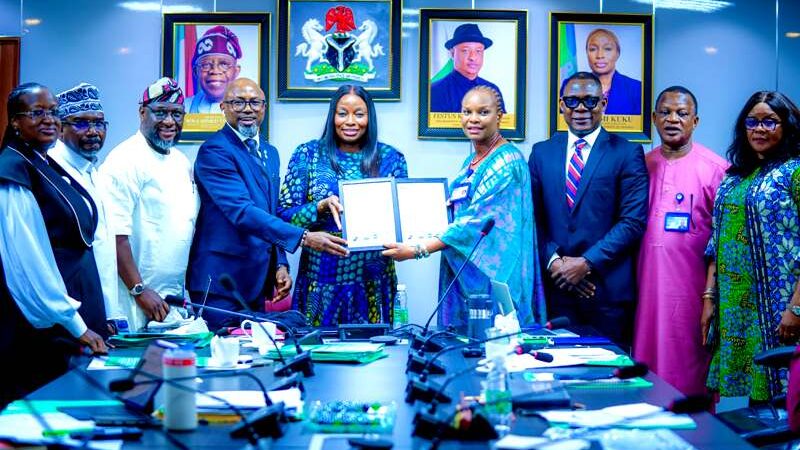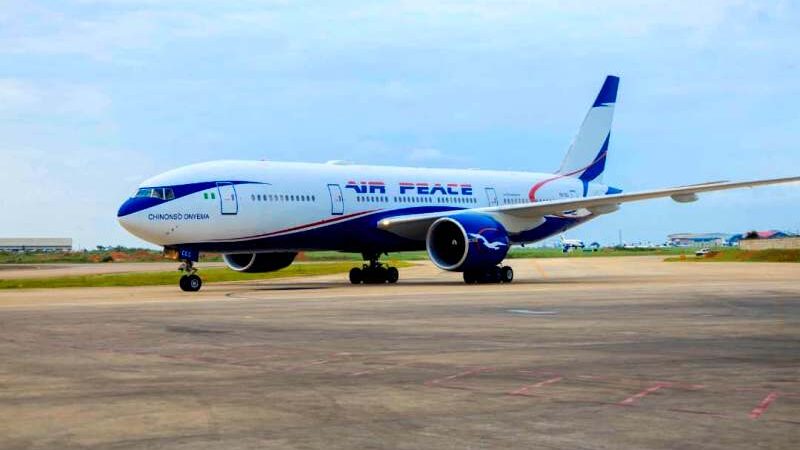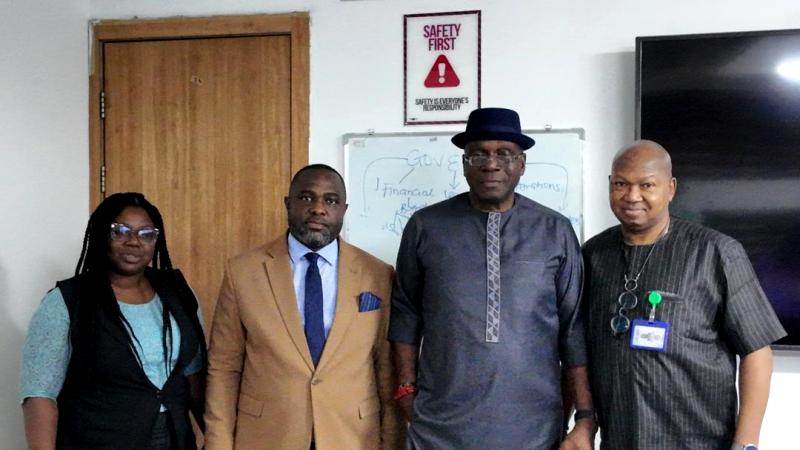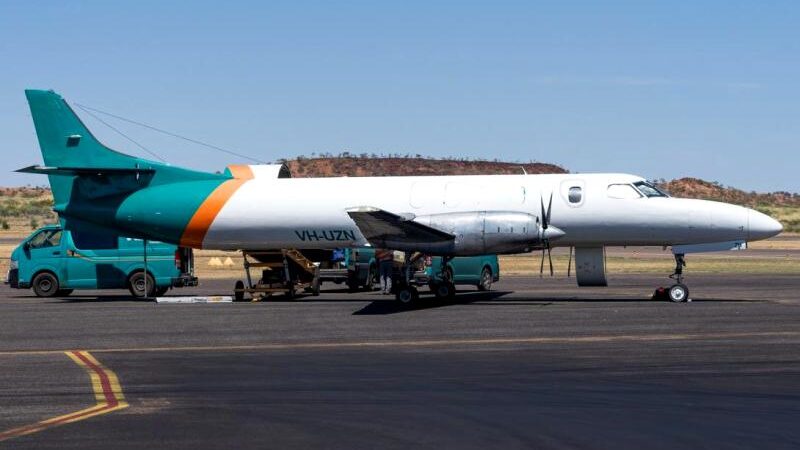Issues That Should Be Addressed To Improve Nigeria’s Aviation Sector, By ASRTI President
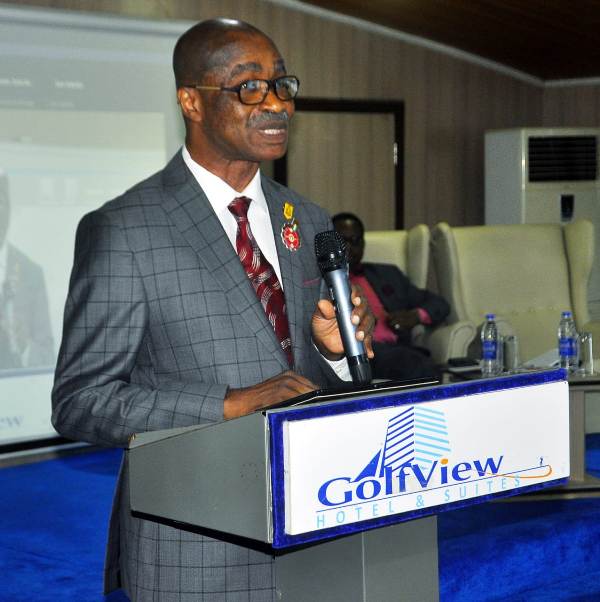
President of Nigeria’s foremost aviation NGO, Aviation Safety Round Table Initiative (ASRTI), popularly known as ART, Air Commodore Ademola Onitiju (Rtd) has highlighted some critical issues that should be addressed to improve Nigeria’s aviation industry.
Delivering his welcome speech at the Quarter 3 2023 Business Breakfast Meeting (BBM) of ASRTI under the theme, Nigerian Aviation Sector Charges, Duties & Tariffs: Truly Exorbitant?, Onitiju offered solution to the challenge of paucity of funds available to governments globally, saying “the ART has variously advocated the adoption of the Public -Private Partnership (PPP) or P3 Projects funding model to ensure the delivery of public transport infrastructure and initiatives using the instrumentality of long-term contract that embraces funding, planning, building, operation, maintenance and divestiture. This approach would be particularly useful in the procurement and acquisition of hi-tech aviation infrastructure which requires highly skilled workers and significant capital outlay. The operation and maintenance contract model were strongly advocated in the area of air navigation and allied equipment. The timely delivery of these infrastructure will enhance the creation of conducive environment for commercial aviation to thrive, promote tourism and attract foreign investment. Its adoption banishes bureaucracy, ensures value for money and off -balance sheet accounting. A lot of room is usually created for innovative ideas to thrive under this approach.
This platform has also advocated preferential interest and exchange rate to incentivize the sector. Tax holidays and rebates for fresh entrants who operate low- fare carrier flights together with the removal of charges at dormant airports could catalyze growth in the sector.”
Onitiju further said “the Nigerian government must be deliberate in the creation of the needed conducive environment to provide a level-playing field, strengthen local airlines and encourage serious investors to come into the sector to boost capacity and international competitiveness. Our charity must begin at home. We must strengthen aviation agencies and allied institutions through an aggressive and purposeful master plan for human capital development to include the re- engagement of retired but mentally agile experienced technical personnel to address the extant deficit of inspectors and regulatory enforcement personnel as a short-term measure.”
On the international plain, Onitiju said “a purposeful citizen and economic diplomacy should be pursued with vigour to ensure that Nigerian flag carriers mandated to utilize Nigerian frequencies in air service agreement are emboldened, supported and equipped by the Nigerian government to overcome obstacles and aero politics associated with the venture. Desk officers at the Ministries of Foreign Affairs, Justice and Aviation must be roused from their injurious slumber. The focus of the government should not, strictly speaking, be that of seeing aviation as a revenue generating sector. Rather, it should be seen as a catalyst, an enabler of socio-economic growth and development.”
Onitiju added that “the Nigerian aviation sector presently supports over 240,000 jobs directly and indirectly while contributing over $1.7 billion US Dollars to the economy” and that “the ART has been at the forefront of the advocacy for the Nigeria aviation sector to realize its full potential. We have posited severally that transparency and strict adherence to due process should be paramount in all spheres of activities in the sector. Towards achieving these, we submitted that a Presidential Executive Order could authorize the NCAA to increase the fleet size of airlines operating scheduled services leveraging the instrumentality of synergy, collaboration and merger. We also recommended the adoption of code share and interlining agreement among airlines to improve passenger comfort and satisfaction.
In order to facilitate ease of payment, reimbursement and funds recovery, we advocated the adoption of one – ticket- all destination ticketing method. A dedicated Aviation financial Clearing House was recommended to smoothen the process.”
He said “in order to minimize incidences of flight delays, cancelations and the menace of birds and wildlife strikes at airports with attendant cost, consequences and passenger discomfort, the ART suggested the acquisition and utilization of hi-tech machines capable of circulating air scented with aromas that repel birds as obtainable at the Chicago O’Hare Airport. We further suggested the intensification of the construction of perimeter fences around the airports. The short lifespan circuit of Nigerian airlines has been largely attributed to the absence of good corporate governance practice of transparency, accountability and responsibility in the running of the airlines. It is our view that there is an urgent need for an ethical review of the behaviours of airline operators in Nigeria. Good corporate governance tame bad acquisition policy, poorly considered route expansion and other malfeasance often manifested in the management of Nigerian airlines. Aviation is international business that requires mutual respect and cooperation of all parties respecting national interests and economic boundaries. The ART has recommended a review of the over 92 Bilateral and Pluri-lateral Air Services Agreements signed by Nigeria with a view to prioritizing Nigeria’s national interest. The Single African Air Transport Market (SAATM), the African Continental Free Trade Area (AfCFTA), the recent Yamoussoukro Decision 24th Anniversary and other air services liberalization Agreements together with the conclusions reached at the on-going global climate Conference of Parties (COP) 28 in Dubai, the United Arab Emirates (UAE) should be subjected to scrutiny and strategies adopted to maximally protect Nigeria’s aviation interest. The body language of fossil fuel producers at the COP 28 was that of a counter argument that its carbon emissions constituted a not too significant quantum to global warming. This is debatable.
Keen observers of activities in the Nigerian aviation sector might have heard of the controversies that trailed the recent submission by some participants at both local and international aviation events to the effect that charges at Nigerian airports especially Abuja and Lagos Airports were among the most prohibitive in the world. As with most issues deserving of attention, we decided to gather a respectable collegiate of knowledgeable individuals and organizations to interrogate the subject of charges and tariffs as applicable in the Nigerian aviation sector. Conclusions reached from this session will enable both industry players and policy makers to better appreciate the place of charges and tariffs in aviation.”
Onitiju invited individuals and corporate organizations to join membership of ART “as we collectively brainstorm to proffer solutions to issues that impede the development and growth of Nigeria’s aviation sector.”
“As you may well know, the ART is a collective of distinguished veteran aviators who have paid their dues in the various segments of the Nigerian aviation sector but are still committed to seeing the sector perform optimally to global standard of safety, security, comfort and profitability. This genuine concern for excellence in aviation practice informed the creation of this forum for a regular engagement of all stakeholders in aviation to brainstorm on nagging issues affecting the sector, ventilate informed opinions with a view to proffering solutions for the common good,” he said.
SEE MORE PHOTOS
PHOTOS From ASRTI BBM On Charges, Duties, Tariffs In The Aviation Sector

